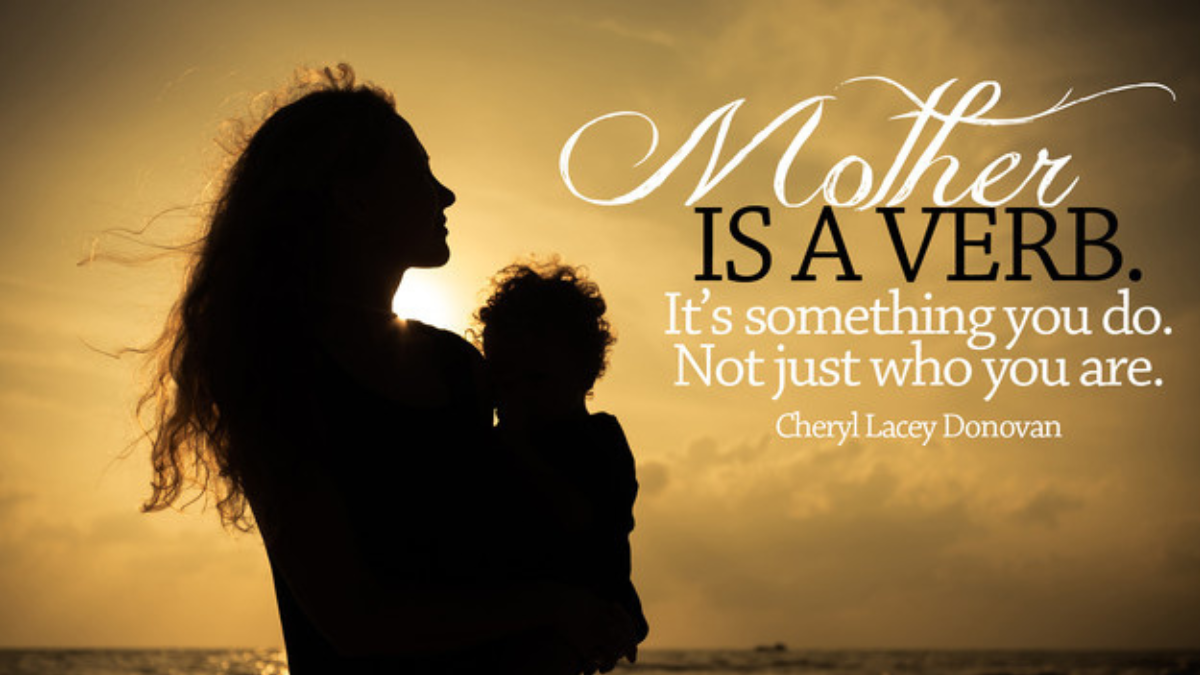What is a Mother? Unpacking the Essence of Maternal Identity

The question “What is a mother?” may seem straightforward, but it delves into a complex, multi-faceted concept that transcends simple definitions. A mother is traditionally seen as a figure of nurturing, guidance, and unconditional love, but the role and significance of motherhood are far richer and more nuanced. This article aims to explore the diverse dimensions of what it means to be a mother, examining the roles, responsibilities, and emotional depth involved.
Understanding the essence of what is a mother requires a look beyond biological definitions and societal expectations. It encompasses the emotional, psychological, and cultural aspects of being a mother, shedding light on the experiences and challenges that define this pivotal role. Whether you’re a mother yourself, considering motherhood, or simply curious about this fundamental aspect of human life, this comprehensive exploration will provide valuable insights into what it means to be a mother.
The Biological Perspective: What Defines a Mother?

When we consider “what is a mother?” from a biological standpoint, the answer often centers on the role of a woman who gives birth and nurtures her child. This perspective is straightforward, yet it’s crucial to understand that biology is just one piece of the maternal puzzle.
The Role of Genetics and Birth
Biologically, what is a mother is a woman who conceives and brings a child into the world. This definition focuses on the genetic connection between mother and child. The maternal bond starts with pregnancy, where the mother’s body undergoes numerous changes to support the developing fetus. This period is marked by physical transformations and emotional shifts as the mother prepares for childbirth and the responsibilities that come with raising a child.
The process of giving birth is a significant milestone in the journey of what is a mother. It marks the beginning of a mother’s direct role in her child’s life, providing the initial care and forming the first bonds through skin-to-skin contact and breastfeeding. This biological perspective emphasizes the physical and genetic links between mother and child but does not encompass the full range of experiences that define motherhood.
The Importance of Nurturing and Care
Beyond the biological connection, what is a mother the nurturing aspect of motherhood plays a crucial role. This involves the emotional and psychological care a mother provides to her child. From the moment of birth, a mother’s role extends to ensuring her child’s health, safety, and emotional well-being. This nurturing aspect includes feeding, comforting, and responding to the child’s needs, which helps in forming a secure attachment.
Nurturing goes beyond the basics of physical care. It involves understanding what is a mother and meeting the emotional needs of the child and providing a stable and loving environment. This dimension of motherhood highlights the significance of a mother’s presence and emotional support in the child’s early development and overall growth.
Expanding Beyond Biology: Non-Biological Motherhood
The biological definition of motherhood does not encompass the experiences of adoptive what is a mother, stepmothers, and other women who take on maternal roles. Non-biological mothers provide the same nurturing, love, and care as biological mothers, demonstrating that motherhood is not solely defined by genetic ties. This broader view recognizes the diverse ways in which women can experience and fulfill the role of a mother.
Adoptive what is a mother, for example, build a maternal bond through their love and dedication rather than biological connections. Their role involves creating a nurturing environment and supporting their child’s development. Similarly, stepmothers may step into the role of a mother through marriage and relationship-building with their stepchildren. These examples illustrate that the essence of motherhood transcends biological definitions and includes the emotional and relational aspects of nurturing and care.
The Emotional Landscape of what is a mother
Motherhood encompasses a rich emotional landscape that goes beyond the physical and biological aspects. It involves complex feelings, including love, sacrifice, joy, and sometimes struggle. Understanding the emotional depth of motherhood is essential to grasping what it truly means to be a mother.
The Joys of Motherhood
One of the most profound aspects of being a what is a mother is the joy that comes with nurturing and watching a child grow. This joy is often expressed in moments of connection, milestones, and the everyday experiences of parenting. From the first steps to the first words, mothers experience a deep sense of pride and happiness as they witness their child’s development and achievements.
The bond between what is a mother and her child can also bring immense emotional fulfillment. This bond is often characterized by a deep sense of love and attachment, which can provide a source of strength and comfort for both mother and child. The emotional connection formed through caregiving and shared experiences contributes to the unique and rewarding aspects of motherhood.
The Challenges and Sacrifices
what is a mother is not without its challenges and sacrifices. The demands of parenting can be physically, emotionally, and mentally exhausting. Mothers often face the challenge of balancing their personal needs with those of their children, leading to a range of emotions from frustration to burnout.
The sacrifices involved in motherhood can be significant. what is a mother may give up personal ambitions, hobbies, or even career goals to prioritize their children’s needs. This selflessness, while sometimes difficult, is a testament to the depth of a mother’s love and commitment. Understanding these challenges provides a fuller picture of the emotional landscape of motherhood.
Navigating the Complex Emotions
Motherhood brings with it a complex mix of emotions that can sometimes be overwhelming. Feelings of inadequacy, guilt, and anxiety are common as mothers navigate the demands of parenting. It’s important to acknowledge and address these emotions, seeking support and resources to manage the stresses of motherhood.
Support systems, such as family, friends, and professional counseling, can play a crucial role in helping mothers cope with the emotional challenges they face. By addressing these issues and seeking help when needed, mothers can better manage their emotional well-being and continue to provide the nurturing care their children need.
Societal Expectations and Cultural Variations
The concept of what it means to be what is a mother is influenced by societal expectations and cultural norms. These expectations can shape the experiences and perceptions of motherhood in various ways.
Societal Expectations of Motherhood
In many societies, there are specific expectations regarding the role of what is a mother. These expectations often include the idea that a mother should be the primary caregiver, responsible for managing household duties and child-rearing tasks. Societal norms can place pressure on mothers to adhere to certain standards of parenting, which may not always align with their personal experiences or desires.
The portrayal of motherhood in media and popular culture can also influence societal expectations. Idealized images of motherhood often emphasize self-sacrifice, constant joy, and seamless parenting. These portrayals can create unrealistic standards and contribute to feelings of inadequacy among mothers who may struggle to meet these expectations.
Cultural Variations in Motherhood
Motherhood is experienced differently across cultures, reflecting diverse beliefs, practices, and values. In some cultures, extended families play a significant role in child-rearing, with multiple generations contributing to the care and upbringing of children. In others, the nuclear family model may be more common, with mothers taking on the primary caregiving role.
Cultural beliefs about parenting styles, gender roles, and family dynamics can shape the experiences of motherhood. Understanding these cultural variations helps to appreciate the diverse ways in which motherhood is experienced and valued around the world.
The Impact of Modern Changes on Motherhood
Modern societal changes, such as increased gender equality and evolving family structures, have impacted the concept of motherhood.what is a mother More women are pursuing careers and balancing professional and personal responsibilities, leading to shifts in traditional parenting roles. These changes reflect a broader recognition of the diverse ways in which individuals can fulfill the role of a mother.
Technology and social media also influence modern motherhood, providing new platforms for sharing experiences, seeking support, and accessing resources. While these tools can offer valuable assistance, they also introduce new pressures and challenges, such as maintaining a curated online presence and navigating parenting advice.
The Role of a Mother in Child Development
A mother plays a crucial role in a child’s development, influencing various aspects of their physical, emotional, and cognitive growth. This role extends beyond the early years and continues to impact a child’s development throughout their life.
Early Childhood Development
In the early years, what is a mother’s role is pivotal in shaping a child’s development. The care and attention provided during infancy and early childhood lay the foundation for future growth. A mother’s responsiveness to her child’s needs, including feeding, comforting, and engaging in stimulating activities, supports healthy development.
Emotional security and attachment formed during these early years are critical for a child’s overall well-being. A mother’s ability to provide a nurturing and stable environment helps build a child’s self-esteem, social skills, and emotional resilience.
Influences on Cognitive and Social Development
As children grow, a mother’s role continues to influence their cognitive and social development. Engaging in activities that promote learning, such as reading, problem-solving, and play, supports intellectual growth. A mother’s encouragement and involvement in these activities can foster curiosity, creativity, and a love of learning.
Social development is also shaped by a mother’s interactions with her child. Teaching social skills, modeling positive behavior, and helping opportunities for socialization children develop healthy relationships and navigate social situations effectively.
Navigating Adolescence and Beyond
During adolescence, the role of a mother shifts as children seek greater independence. Supporting a teenager’s transition to adulthood involves balancing guidance with respect for their growing autonomy. A mother’s continued involvement, open communication, and support during this period are crucial for navigating the challenges of adolescence.
The impact of a mother’s role extends into adulthood, as the values and lessons learned during childhood often influence an individual’s behavior and relationships. The foundation of love, support, and guidance laid by a mother continues to affect her child’s life long after they have grown.
The Evolving Concept of Motherhood
The concept of motherhood is not static; it evolves with changing social, cultural, and personal contexts. Exploring how motherhood has changed over time provides insight into its current and future trajectories.





